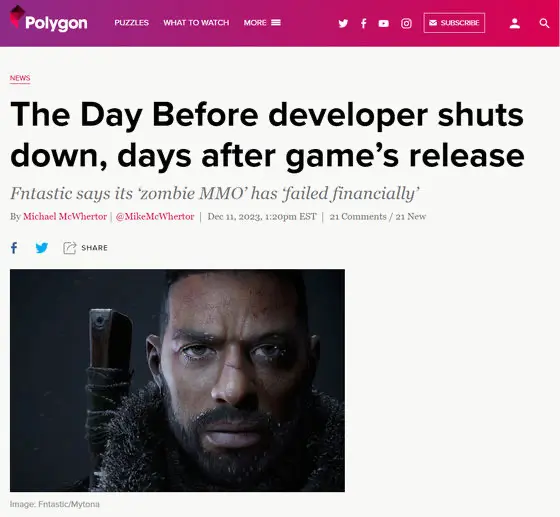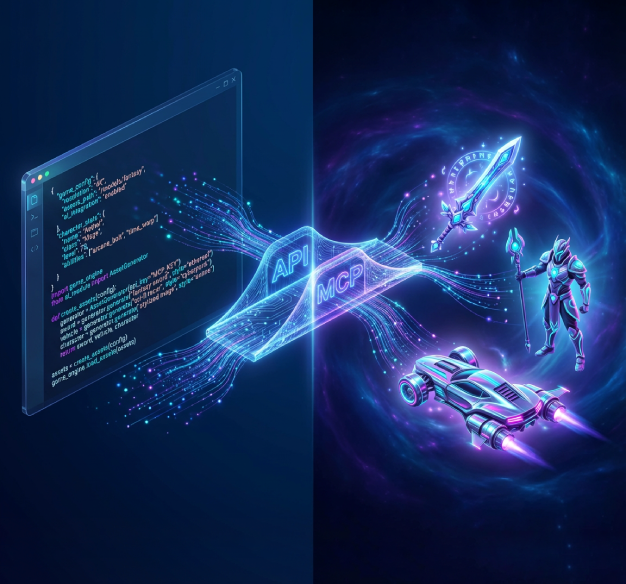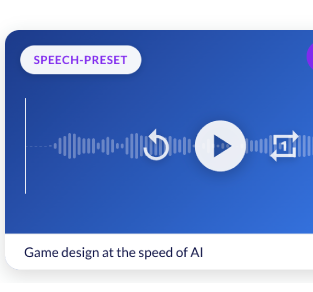Proper Pre-Production Prevents Costly Developmental Mistakes & “Development Hell”

The infamous “The Day Before” - the game that shut down in just mere days after release. The “zombie massively multiplayer online” game has failed financially.
A work may move between many sets of artistic leadership, crews, scripts, game engines, or studios. Many projects which end up in “development hell” never progress into production, and are gradually abandoned by the involved parties.
What is Video Game Development Hell or Limbo

Developmental hell, in the context of video game development, refers to a prolonged, often troubled phase of development where a game's completion seems uncertain. This term is not exclusive to video games and is used in other forms of media production, such as films and television shows.
In video games, developmental hell can result from a variety of factors, including but not limited to, changing project scopes, lack of clear direction, technical challenges, financial issues, and team conflicts.
Games stuck in developmental hell may experience significant delays, budget overruns, scope creep, and in some cases, may never be released.
Skipping some or many parts of the pre-production phase can lead to producing a video game that turns out to be far from what the original idea or concept was planning for, resulting in unexpected or even disastrous results.
Unexpected challenges in the developmental process can lead to “development hell” - which requires burning through tons of money to fix. If the problem is too gargantuan to fix, the project may be abandoned altogether.
Common mistakes video game developers make that can cause development limbo

Here are the most common mistakes that can occur in video game development - which usually stems from the lack of a proper pre-production phase:
- Unclear Vision: Pre-production is essential for defining the game concept, mechanics, story, and overall vision. Skipping this phase can result in a lack of clarity about what the game is supposed to be, leading to confusion and inconsistency in the final product.
- Scope Creep: Continuous additions and changes to the game's scope without proper adjustment of timeframes and resources. Without proper planning in pre-production, it's easy for the scope of the project to grow out of control. This can lead to delays, increased costs, and ultimately, an unfinished or unsatisfactory game.
- Increased Risk of Errors: Pre-production allows developers to identify potential problems and challenges early on, which can be addressed before they become major issues. Skipping this phase increases the risk of encountering unforeseen problems during production, which can be more difficult and costly to fix.
- Poor Resource Management: Pre-production helps in allocating resources effectively, including budget, time, and personnel. Skipping this phase can result in mismanagement of resources, leading to inefficiencies and delays in the development process.
- Lack of Team Alignment (Project Management): Pre-production is a crucial time for team members to get on the same page regarding the game's vision, goals, and workflow. Skipping this phase can lead to misunderstandings, conflicts, and decreased productivity among team members.
- Lower Quality: Without proper planning and preparation, the final game is likely to suffer in terms of quality. It may lack polish, have bugs and glitches, or fail to meet players' expectations.
- Market Changes: Significant changes in market trends or platform requirements that necessitate major adjustments to the game.
How To Avoid Video Game Development Hell / Limbo

Here are some of the steps video game developers should take and keep in mind to avoid developmental hell / limbo:
- Clear Vision and Scope: Start with a clear, well-defined vision of what the game is about and its core mechanics. Avoid changing these fundamentals mid-development.
- Effective Planning and Project Management: Use project management tools and methodologies to plan the development process, set milestones, and track progress. Agile development practices, such as Scrum, can help accommodate changes more fluidly without derailing the project.
- Realistic Scheduling and Budgeting: Create realistic schedules and budgets that account for unforeseen delays and challenges. Include buffer time for unexpected issues.
- Regular Reviews and Adjustments: Conduct regular project reviews to assess progress, identify issues early, and make necessary adjustments to the plan.
- Fostering Open Communication: Encourage open and transparent communication within the development team and with stakeholders. This helps in identifying potential issues early and addressing them promptly.
- Limiting Scope Creep: Be vigilant about scope creep. While it's important to iterate on feedback, changes should be carefully considered for their impact on the schedule and budget.
- Risk Management: Identify potential risks at the beginning of the project and throughout development. Develop contingency plans for addressing these risks.
- Focus on Minimum Viable Product (MVP): Focus on developing a minimum viable product first. This approach allows you to create a playable version of the game with core features, which can then be expanded based on feedback and additional resources.
How AI-Assisted Game Development Tools Can Prevent Production Disasters
By harnessing the power of artificial intelligence, Ludo.ai enables rapid conceptualization, prototyping, and testing of game concepts and art, streamlining the workflow significantly and offering game developers an array of tools that transform the video game pre-production process.

We at Ludo.ai believe that the pre-production phase of a video game project is grossly misunderstood, misused, underestimated, and underutilized. Producing a video game that has the wrong game mechanic or concept can cost both large and indie studios precious resources, time, and money.
Ludo.ai helps remove creativity roadblocks, and analysis paralysis, and helps with production through the following suite of tools:
- AI-Powered Video Generation: Create and test gameplay scenarios with AI-generated videos, allowing for quick iteration and visualization of ideas. No need to code anything - see your game live right away.
- AI-Powered Image Generation: Conceptualize environments, characters, and concept art with AI that turns ideas into visual representations effortlessly. No need to hire artists just yet - see your game represented in visual graphics and gameplay imagery.
- AI-Powered Game Ideation and Concept Generation: Break through creative blocks with AI that suggest unique game concepts, mechanics, and themes. No need to hire writers - conceptualize your game’s storyline and descriptions with AI first.
- AI-Powered Game Charts and Market Analysis: Powerful tools that research game trends, concepts, and competitive analysis - helping you to come up with the next hit game without guesswork. This saves game developers and studios alike time and money so you don’t choose the wrong type of game to make that is selling poorly or isn’t popular with the market.
- Game Design Documentation Software: Keep your team aligned with integrated documentation tools that organize and articulate game concepts. The better communication a team has, the less costly the development process will be as there won’t be assumptions made or blindspots.
All of these tools are included in Ludo.ai’s software, and they combine to form a powerful suite of tools that will save game developers money and time in video game production.
The Ludo.ai Advantage
With the advantage of using Ludo.ai video game development tools, a development team can significantly reduce the risk of their project falling into developmental hell / limbo.
It's also important to recognize that some factors, such as changing market conditions or new technological challenges, may be beyond the control of the team. Flexibility, resilience, and a willingness to adapt are crucial in navigating the uncertainties of game development.




